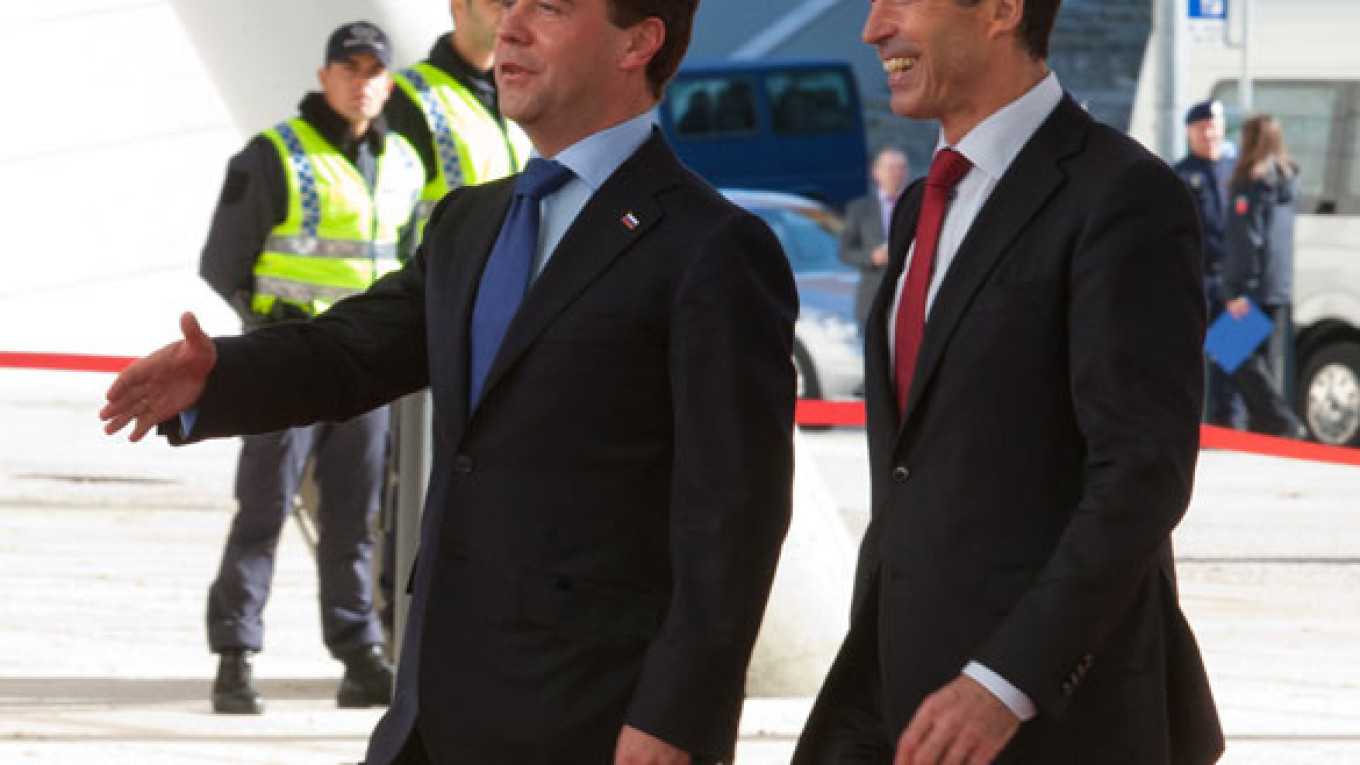A European missile defense system that upgraded operations over the weekend is not directed at Russia and will not threaten its strategic stability, North Atlantic Treaty Organization leaders said in a statement issued at a conference in Chicago.
Leaders of the 28-country alliance met for two days to discuss issues including the ongoing war in Afghanistan and a Europe-based missile defense shield NATO says is designed to protect member nations from potential attacks by countries such as Iran.
Russia has complained that the missile system could in the future pose a threat to its strategic nuclear deterrent and has warned that it could launch a preemptive strike against the missile sites.
At the start of the conference on Sunday, NATO leaders issued a statement reiterating its position that the alliance has security interests in common with Russia and that the missile shield is not directed at the country.
"NATO missile defense is not aimed against Russia and will not undermine Russia's strategic deterrent," the statement said, Interfax reported. "Considering our mutual security interests with Russia, we remain committed to cooperation in the sphere of missile defense in a spirit of mutual trust and on terms of reciprocity, as in the case of how recent studies were undertaken on tactical missile defense within the framework of the NATO-Russia Council."
Moscow has called nonbinding statements by NATO on the missile defense system to be insufficient, instead demanding legal guarantees that it is not directed at Russia.
NATO announced that "interim capability" had been achieved for the missile system, which is "limited in its initial phase" but nonetheless "can provide real protection against a ballistic missile attack," according to a statement released by the United States presidential administration.
With the change in status, U.S. ships in Europe can now operate under NATO command when the need arises, the statement said.
Apart from the issue of missile defense, NATO country leaders said that while progress had been made over the 10 years that have passed since the creation of the Russia-NATO Council, they are concerned with Russian statements regarding military buildup near the borders of NATO countries and are seeking a change in relations.
"Our positions differ on a range of issues, and trust, mutual transparency and predictability need to be increased with the goal of achieving the full potential vested in the Russia-NATO Council," the statement said.
A Message from The Moscow Times:
Dear readers,
We are facing unprecedented challenges. Russia's Prosecutor General's Office has designated The Moscow Times as an "undesirable" organization, criminalizing our work and putting our staff at risk of prosecution. This follows our earlier unjust labeling as a "foreign agent."
These actions are direct attempts to silence independent journalism in Russia. The authorities claim our work "discredits the decisions of the Russian leadership." We see things differently: we strive to provide accurate, unbiased reporting on Russia.
We, the journalists of The Moscow Times, refuse to be silenced. But to continue our work, we need your help.
Your support, no matter how small, makes a world of difference. If you can, please support us monthly starting from just $2. It's quick to set up, and every contribution makes a significant impact.
By supporting The Moscow Times, you're defending open, independent journalism in the face of repression. Thank you for standing with us.
Remind me later.


